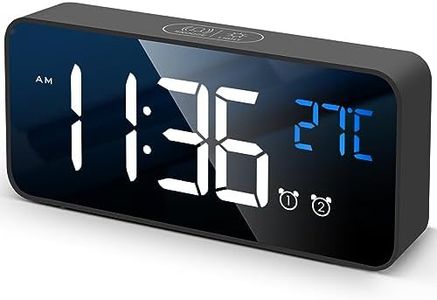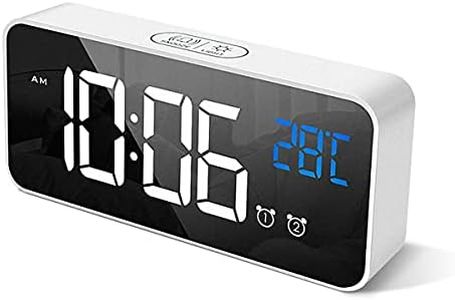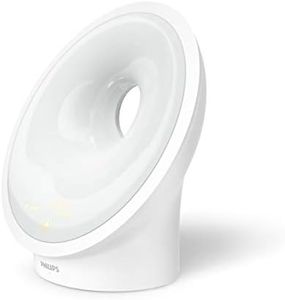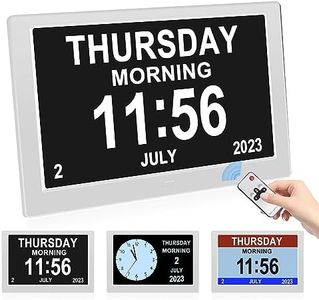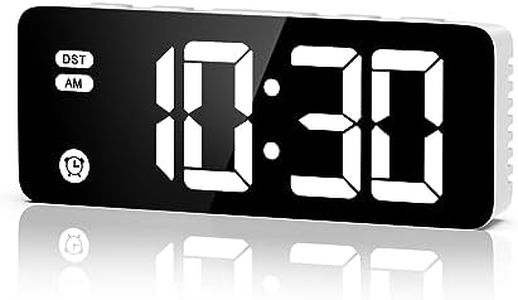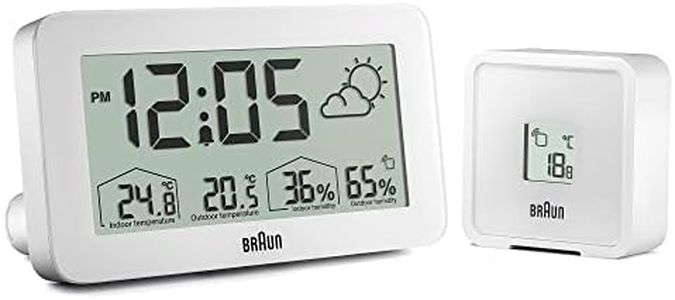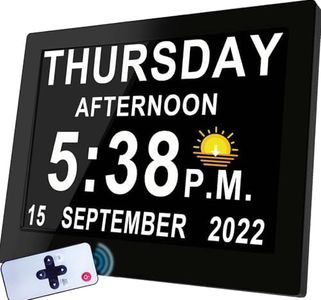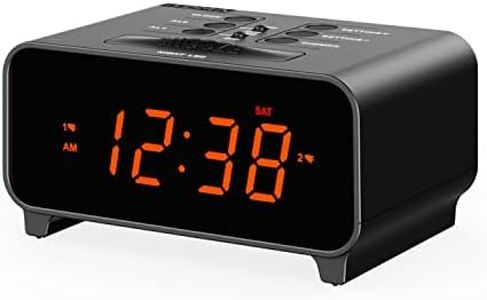We Use CookiesWe use cookies to enhance the security, performance,
functionality and for analytical and promotional activities. By continuing to browse this site you
are agreeing to our privacy policy
10 Best Digital Clocks
From leading brands and best sellers available on the web.By clicking on a link to a third party's website, log data is shared with that third party.
Buying Guide for the Best Digital Clocks
When choosing a digital clock, it's useful to start by thinking about where you'll use it and what features are most helpful to you. Digital clocks come in various styles and with a range of capabilities, from simple time displays to smart functions and alarms. Deciding what you really want from your clock—whether its readability, ease of use, extra functions, or connectivity—is a great starting point. Remember, a good digital clock should make your day easier by helping you stay on time and fitting smoothly into your environment.Display Size and BrightnessThe display size refers to how large the clock's numbers and screen are, while brightness deals with how easily you can see the digits day or night. A larger display can be easier to read from a distance or for those with vision troubles. High brightness makes clocks easier to see in bright rooms, but clocks with adjustable dimming are useful if you need them by your bedside to prevent them from being too bright at night. If your clock will be across the room or used in a public area, a larger, brighter display is usually better. For bedrooms, opt for moderate or adjustable brightness to avoid disrupting sleep.
Time FormatDigital clocks usually let you pick between 12-hour (with AM/PM) and 24-hour (military time) formats. This is simply about what you find easy to read. If you're used to standard AM/PM time, a 12-hour format is best, whereas the 24-hour format is common for those who prefer military or European timekeeping. Make sure your clock offers the format you prefer, or is easily switchable.
Alarm and Snooze FeaturesMost digital clocks offer alarm and snooze functions, but how they work can vary. Some give only one alarm, while others let you set multiple alarms for different days or times. Snooze options can have different lengths, so think about how much extra time you need before waking up. If you have a regular schedule or want to set different alarms for weekdays and weekends, pick a clock with multiple programmable alarms. If you like extra sleep time, pay attention to the snooze interval setting.
Power Source and BackupDigital clocks can run on batteries, plug into the wall, or use both. Clocks with a backup battery keep time even when the power goes out, which is important if you rely on the alarm to wake up. If your clock will stay in one place, a plug-in model with battery backup is ideal. For travel or areas with limited outlets, a battery-operated clock is more convenient.
Extra Features (Date, Temperature, USB Charging, Bluetooth, etc.)Some digital clocks offer extras like temperature display, date, USB ports for charging devices, Bluetooth for music, or connectivity with smartphones. These features can be handy if you want more from your clock or a multifunctional device. If you only need to tell the time, basic models work fine. But if you want a charging station, weather updates, or music controls, look for those extra capabilities.
Ease of Use and SetupHow simple it is to set the time, alarm, and features matters, especially if you want a stress-free experience. Some clocks use touchscreens, while others have buttons. Clear instructions, labeled buttons, and simple menus make setting up and using the clock easy for anyone. If you're not a fan of complicated gadgets, look for models praised for their simplicity and clear displays.

